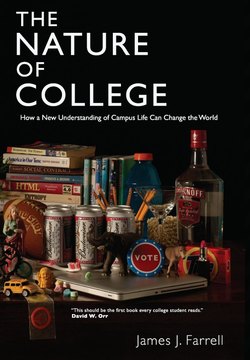Читать книгу The Nature of College - James J. Farrell - Страница 33
На сайте Литреса книга снята с продажи.
“Murketing”
ОглавлениеThough specialization and comparative advantage play a huge role in our consumer cluelessness, our ignorance about the real story of our belongings comes mainly from the systems of misinformation we call commercial culture. Advertisers and marketers offer information about products, but they systematically screen consumers from information about their social and environmental impacts. They seduce us with stories about sexiness and sociability, cool and control, power and possibility, but they don’t tell stories that don’t sell—stories of extraction, production, and distribution. We see the dorm refrigerator, but not mountaintop removal mining; the laptop computer, but not the mountains of electronic waste in China. Instead of telling the whole truth, marketers often sell the half-truth (and half is a generous estimate), decontextualizing products from their real histories and recontextualizing them in fantasy worlds where costs are invisible and benefits are immediate. Thanks to such “murketing,” we routinely make our consumer choices in ignorance of their actual effects and our own responsibility.22
Murketing: 1) Promoting consumption by converting human hopes into commercial fantasies, half-truths, and lies; 2) The process of making complexity and complicity invisible.
It seems perfectly natural that companies promote the positive attributes of their products and conceal the negative implications, but if we don’t know the whole truth about the goods, we can’t make good decisions. It’s hard to do real cost-benefit analysis when the benefits are touted in ads, and the costs are hidden from sight. In theory, the free market operates on the premise that rational people make informed decisions about consumption, so you would think that business executives, who are typically the most vocal proponents of free-market economies, would tell us everything we need to know. But in reality, advertisers operate on the belief, obviously true, that emotional promises can influence good people to make uninformed decisions about their actual consumption. In such a system of irresponsible consumption, it’s virtually impossible for individuals to be responsible consumers, or to live sustainably. Until we change the system so that we routinely learn how our commodities and clothes are made, we’ ll be covering up our environmental and social shame with fig leafs and other fashions.23
